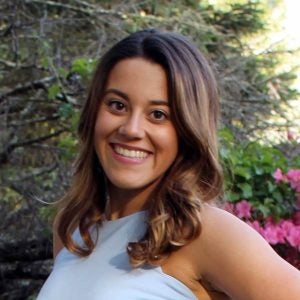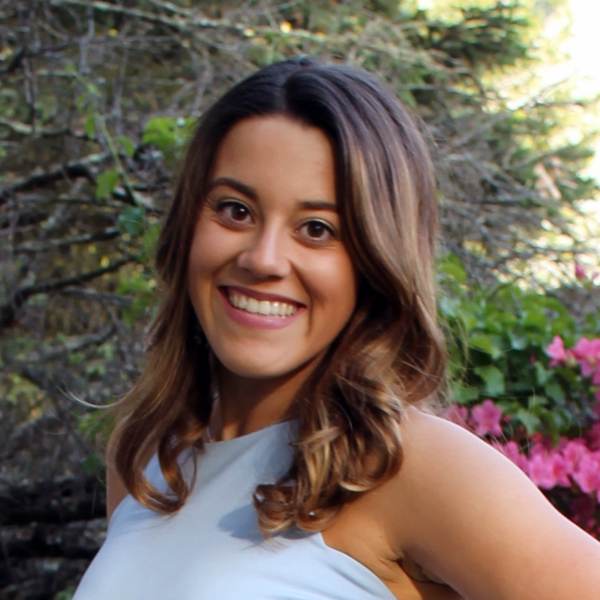 Cassidy Cabral of Bristol knew what major she wanted to pursue before she arrived at URI. She had shadowed professionals in different careers while a student at Mount Hope High School and discovered an affinity for speech-language pathology.
Cassidy Cabral of Bristol knew what major she wanted to pursue before she arrived at URI. She had shadowed professionals in different careers while a student at Mount Hope High School and discovered an affinity for speech-language pathology.
At URI, Cabral pursued her bachelor’s in communicative disorders with a singular focus, earning a near-perfect GPA by the time she graduated in May. In September, the daughter of two URI graduates begins pursuing her master’s degree in speech-language pathology.
But even with a career path long mapped out, Cabral’s experience at URI has brought unexpected discoveries. When Cabral was a junior, Assistant Professor of Communicative Disorders Michelle Flippin asked her to assist her on a project examining father-implemented social communication with a largely non-verbal child who has autism spectrum disorder. “She has become an expert using Noldus Observer software, (behavioral research software),” Flippin said, noting that it is unusual for undergraduates in communicative disorders to conduct research.
The study examined how the dad interacted with his young son, and Cabral reviewed tapes of their interactions, recording and coding data on language use and patterns. “By the end of the study, we saw the child had begun using more words,” Cabral said.
Last fall, she and Flippin presented a poster on their findings at the American Speech-Language Hearing Association’s national convention. “At the conference, it was really interesting to see the opportunities in the profession and all the research that is happening,” Cabral said of the eye-opening experience.
Flippin then asked Cabral to work on a project examining links between language, learning and movement in a kinesthetic classroom setting at West Kingston Elementary School in spring 2017. “She used the Noldus Pocket Observer for that project — doing round-robin coding of the second-graders to record if they were on or off task and which piece of equipment they were on,” Flippin explained. “Cassidy helped me finalize some of the codes for the off-task student behaviors, and she was a ringer at this — her mother is a second-grade teacher and Cassidy was very comfortable and skilled in observing the elementary students.”
“I really enjoyed it; I like being in the classroom,” Cabral said of the research.
Cabral hopes to collaborate again with Flippin, digging deeper into research, which she finds surprisingly rewarding. “We have so many language samples to investigate,” she said of data from that project. “I might do my thesis on some aspect of that.”

